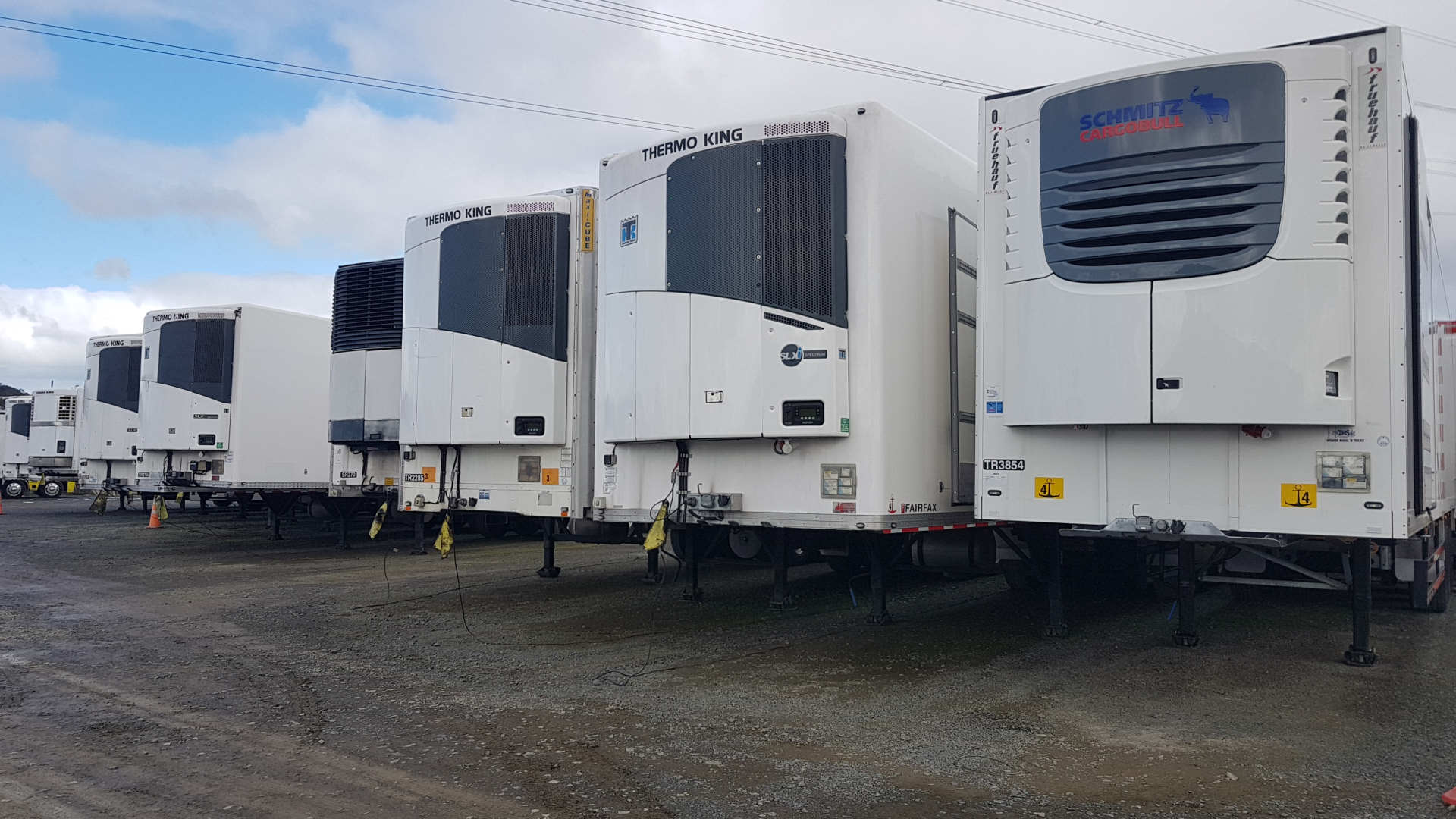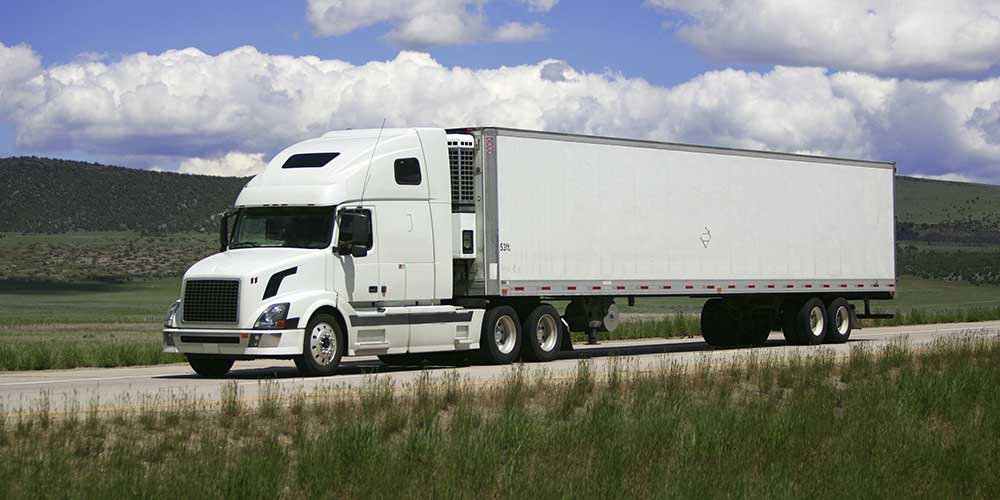Refrigerated Transportation Thermo King: Keeping Item Fresh in Transit
Picking the Right Transportation Refrigeration System for Your Fleet
Selecting an appropriate transportation refrigeration system for your fleet is an important decision that can considerably affect operational performance and item honesty. It demands a comprehensive understanding of your particular refrigeration demands, including temperature needs and delivery schedules.
Understanding Your Refrigeration Demands
When choosing a transport refrigeration system, understanding your details refrigeration needs is vital to making certain item top quality and conformity with industry standards. Different factors have to be considered to identify the most suitable system for your procedure. These include the kind of products being transported, their temperature level needs, and the duration of transportation.
For perishable products, such as fresh fruit and vegetables or drugs, accurate temperature control is important. Comprehending the temperature level variety needed for each item permits the choice of a system that can preserve those problems continually. Additionally, take into consideration the frequency of deliveries and the distance took a trip; longer trips might require systems with improved insulation or back-up power alternatives to avoid temperature level changes.

Furthermore, the ability of the refrigeration system must straighten with your load dimension. Straining a system can lead to insufficient cooling, while an extra-large system might be expensive and ineffective. Governing compliance is crucial; acquaint on your own with worldwide and regional standards regulating the transportation of temperature-sensitive goods. By thoroughly evaluating these elements, you can make sure that your chosen transport refrigeration system successfully meets your functional requirements and maintains product stability.
Kinds Of Transportation Refrigeration Equipment
Choosing the ideal sort of transportation refrigeration system is crucial for guaranteeing the secure transportation of temperature-sensitive products. There are numerous systems readily available, each developed to satisfy specific demands and applications.
These systems are frequently favored for their efficiency and reduced preliminary costs. An additional option is the central refrigeration system, which serves several areas or lorries from a single compressor unit.
Furthermore, there are self-supporting refrigeration units that combine the compressor and evaporator in one plan. These units are suitable for smaller vehicles or when space is limited. For specialized applications, such as transporting perishables or pharmaceuticals, cryogenic refrigeration systems may be utilized, utilizing liquid nitrogen or co2 to keep ultra-low temperatures.
Last but not least, hybrid refrigeration systems that combine electrical and diesel power are ending up being progressively popular, offering versatility in energy use and minimizing environmental impact. Comprehending these numerous types enables fleet drivers to make informed decisions tailored to their specific operational needs.
Key Features to Think About
Exactly how can one make certain that a transport refrigeration system satisfies all operational requirements? To accomplish this, a number of crucial attributes need to be carefully examined. Temperature control is vital; systems need to use exact temperature setups to suit numerous items, varying from iced up goods to perishable products.
Power performance is one more essential factor to consider, as it influences operational prices. Seek systems that make use of sophisticated technology, such as variable rate compressors, to optimize energy usage without endangering performance.
Another feature to assess is the integrity and durability of the devices. Equipments built from top notch materials and developed for durability versus rough conditions will decrease upkeep costs and downtime.
Additionally, the ease of upkeep and access of parts can considerably affect functional effectiveness (refrigerated transportation thermo king). Features like modular layouts or remote surveillance capabilities can simplify service processes
Lastly, compatibility with existing fleet management software can boost tracking and reporting processes. By concentrating on these essential attributes, fleet operators can guarantee that their transportation refrigeration systems not just satisfy current needs however also adapt to future needs.

Budgeting for Refrigeration Solutions
Examining vital functions of transport refrigeration systems is only one component of ensuring operational efficiency; budgeting for refrigeration solutions is just as important. A well-structured budget plan not only includes the preliminary purchase rate but additionally thinks about long-term operational costs, including power intake, upkeep, and prospective repair requirements.
When establishing a spending plan, fleet supervisors ought to first examine the complete expense of ownership (TCO) This consists of not just the procurement prices however also recurring costs associated with fuel performance and the toughness of the refrigeration devices. Choosing systems with higher power effectiveness ratings may produce considerable cost savings gradually, reducing upfront costs.
In addition, fleet drivers ought to account for potential scalability. As businesses grow, the refrigeration needs might transform, demanding upgrades or additional units. Planning for these future expenses can prevent financial stress.
Funding options can additionally play a critical function in budgeting. Leasing, loans, or straight-out purchases each have unique economic ramifications, and recognizing these can help in making an informed decision. Inevitably, a detailed budget that considers both prompt and future demands makes sure that transportation refrigeration systems add positively to the overall operational click this performance of the fleet.
Upkeep and Assistance Options
In the realm of transportation refrigeration systems, effective maintenance and support alternatives are important for ensuring optimum performance and longevity. Routine upkeep is important to stop break downs and maintain the stability of temperature-sensitive cargo. It is suggested to establish a regular examination schedule with qualified service technicians who can do essential checks and repair work on refrigeration systems.
Assistance alternatives must include a robust service arrangement, covering both regular maintenance and emergency situation repair services. This makes certain that your fleet has access to motivate assistance, minimizing downtime and keeping operational efficiency. Lots of suppliers offer extensive support bundles that consist of training for your staff, allowing them to execute basic troubleshooting and upkeep jobs.
Additionally, utilizing remote tracking technology can boost your maintenance strategy - thermo king truck refrigeration. These systems offer real-time information on temperature and efficiency, permitting aggressive measures prior to concerns rise. Purchasing training and modern technology not just enhances your fleet's integrity however also prolongs the life-span of your refrigeration systems
Inevitably, a strategic technique to look at more info maintenance and support will certainly secure your investment and guarantee that your transportation refrigeration systems run at peak effectiveness, delivering consistent outcomes for your company.

Verdict
Finally, picking the ideal transportation refrigeration system for a fleet necessitates a detailed analysis of details refrigeration demands, system types, and essential features. Prioritizing functional performance, power intake, and maintenance considerations is crucial for making certain integrity. go to these guys Furthermore, mindful budgeting and preparation for future scalability will certainly add to the lasting success of the refrigeration strategy. Inevitably, a well-informed choice will boost item integrity and enhance overall logistics procedures within the fleet.
Selecting a proper transportation refrigeration system for your fleet is a critical decision that can dramatically influence functional performance and product stability.When picking a transportation refrigeration system, comprehending your certain refrigeration demands is extremely important to guaranteeing item top quality and conformity with sector requirements. By thoroughly evaluating these aspects, you can guarantee that your picked transportation refrigeration system successfully meets your functional requirements and maintains product integrity.
Eventually, a detailed spending plan that takes into consideration both prompt and future needs guarantees that transportation refrigeration systems contribute favorably to the general operational efficiency of the fleet.
In verdict, selecting the ideal transportation refrigeration system for a fleet necessitates a thorough examination of details refrigeration demands, system kinds, and important features.